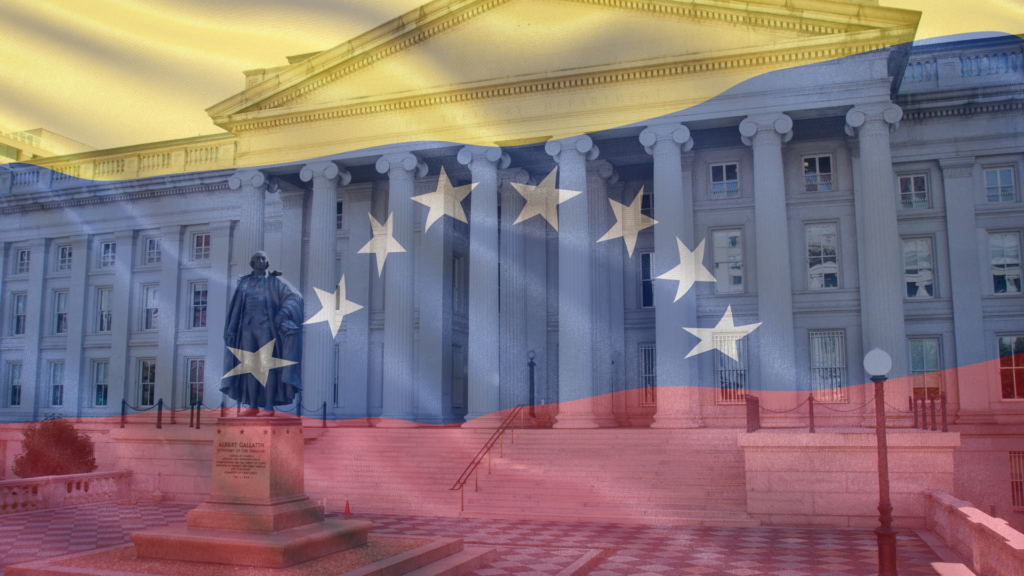This article originally appeared on Venezuelanalysis
The US Treasury Department emitted a license allowing production, investment and sale in the Venezuelan oil, gas and gold sectors, a move classified by the Venezuelan government as the suspension of sanctions on state-owned oil company PDVSA.
On Wednesday afternoon, the Treasury’s Office of Foreign Assets Control (OFAC) issued four licenses “suspending select sanctions.”
The announcement came on the heels of an agreement signed Tuesday between the Nicolás Maduro government and the US-backed Unitary Platform in Barbados establishing certain conditions for the 2024 presidential elections.
“In response to these democratic developments, the U.S. Department of the Treasury has issued General Licenses authorizing transactions involving Venezuela’s oil and gas sector and gold sector,” Under Secretary of the Treasury for Terrorism and Financial Intelligence Brian E. Nelson wrote in a statement.
The announcement came with a warning that “Treasury is prepared to amend or revoke authorizations at any time” should the Biden administration unilaterally determine that the Venezuelan government has not followed through on agreements.
General License 44 authorizes state oil company PDVSA, as well as joint ventures where it holds majority stakes, to produce and export oil to US customers. The document likewise allows the provision of goods and services, new investment, and the settlement of debts with oil and gas shipments. It is valid for six months.
OFAC’s General License 43 authorizes dealings involving Venezuela’s state mining company Minerven as well as transactions with the Venezuelan Central Bank (BCV) and Bank of Venezuela (BDV), the country’s largest financial institution.
Another license was amended to remove bans on secondary trading involving Venezuelan state and PDVSA bonds. Finally, state airline Conviasa was granted permission to execute transactions related to the repatriation of Venezuelan citizens from Latin American countries.
For their part, Venezuelan leaders welcomed the licenses as a step in the right direction.
“It is a first step of a necessary global agreement,” President Maduro told reporters at Miraflores Palace. “It will be a progressive path based on dialogue and respect for Venezuela’s Constitution and sovereignty.”
National Assembly President Jorge Rodríguez, who heads the government delegation in the talks with the opposition, argued that there should be “no need to be issuing licenses,” echoing Caracas’ demand for full sanctions removal. However, he described the licenses as a “very good first step.”
Vice President Delcy Rodríguez added that the licenses “will allow payment mechanisms to our country” as they authorize the BCV and BDV to carry transactions in the oil and gas sectors.
Since 2017, Washington has imposed a series of punishing measures against the Venezuelan economy, particularly targeting the oil industry. After early financial sanctions, the Trump administration imposed an oil embargo that blocked all exports to US customers, followed by secondary sanctions and other measures destined to strangle the country’s main source of income.
While the current licenses temporarily lift those prohibitions, Venezuelan state entities have not regained access to US-based bank accounts. The statements from OFAC were not accompanied by a political statement from the White House normalizing relations with the Maduro government. Given Washington’s non-recognition of the Venezuelan government, the accounts remain frozen or under the control of the defunct, opposition-controlled 2015 National Assembly.
As a result, potential US buyers might not be allowed to pay directly for crude shipments. The license opens the possibility of swap agreements, such as oil-for-fuel, as a possible workaround. Venezuelan creditors are also likely to eye crude-for-debt deals. Washington has previously issued a sanctions waiver to oil giant Chevron under very restrictive conditions with limited timeframes.
Venezuelan economist Francisco Rodríguez speculated that the present licenses might allow US actors to function as intermediaries in oil transactions. He claimed it would have an “important yet limited” positive impact on the Venezuelan economy.
The OFAC licenses and Barbados agreement follow months of direct, back-channel talks between Caracas, the opposition, and the US government. Venezuelan lead negotiator Jorge Rodríguez reportedly held a secret meeting in June with White House official Juan González.
González, Biden’s key Latin America advisor, has frequently tied sanctions relief to progress on conditions for “free and fair” elections.
After years of efforts to diplomatically isolate Maduro, including a failed effort to prop up a Juan Guaidó-led “interim government,” the US and its allies were forced to re-engage with the Venezuelan government. Caracas’ position has additionally been bolstered by political shifts in the region, with progressive governments publicly calling for an end to sanctions and a change in US policy toward Venezuela.
Washington was also compelled to reevaluate its sanctions policy toward Venezuela over its role in driving migration to the US. The conflict in Ukraine and heightened tensions in the Middle East additionally motivated US policymakers to try and stabilize global energy markets.

